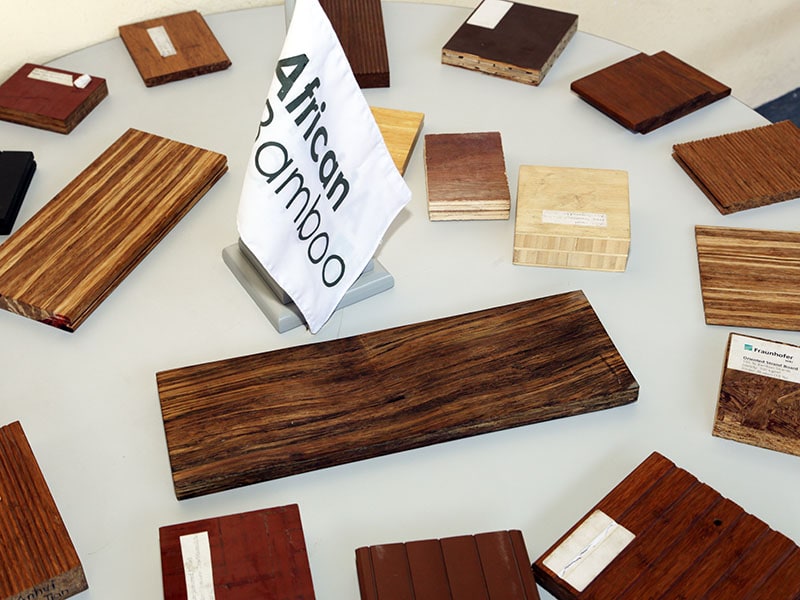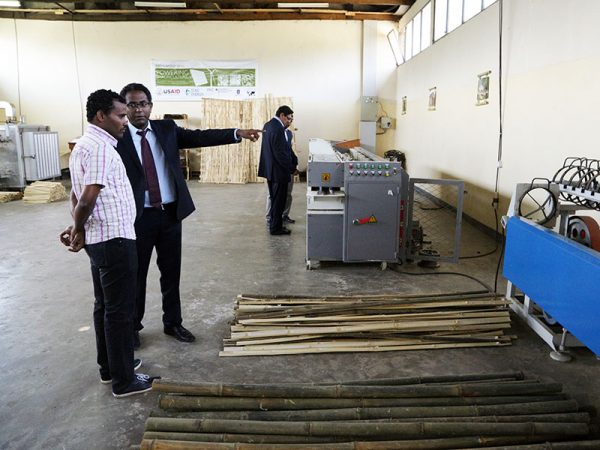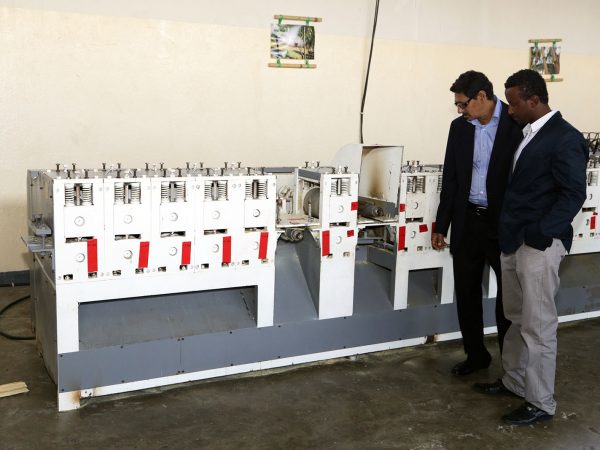
The construction industry consumes 40-50% of all primary raw materials and 40% of
global CO2 emissions are directly or indirectly from commercial buildings and
infrastructure.
Concurrently, embodied carbon, or the material that goes into a building’s construction
like steel and cement contributes more than 3,000 mega tonnes of CO2 per year.
The construction sector contributes to 23% of air pollution, 50% of climatic change, 40%
of drinking water pollution, and 50% of landfill waste.
African Bamboo has a disruptive technology for industries shifting towards a circular bio-based
economy. We have a solution that utilizes organic renewable material, as the need for
alternatives to concrete, steel, and plastic is increasing. The technology saves 50% energy
savings compared to conventional pressing applicable for bamboo, heavy plywood, and many
more.


Our entry point was the creation of a universal bamboo-based panel that is twice as strong as
comparable building material. These panels are sourced from a non-invasive, loose-clumping
bamboo called Yushania Alpina. It has an annual production of 40-60 tons per Ha and
sequesters 30-50 tons CO2 per Ha per year. These unique characteristics gave us the
motivation to expand our research and innovation into additional materials and processing
technologies.
Yushania Alpina grows widely in Ethiopia, and it has the potential to catalyze jobs for millions of
people in the country’s agro-forestry communities. We are working closely with these
communities to develop sustainable bamboo forest management, supply chain, and industrial
applications.

Get in Touch
Our services and products enable our customers to implement circular material solutions that maximize carbon storage and enhance performance.